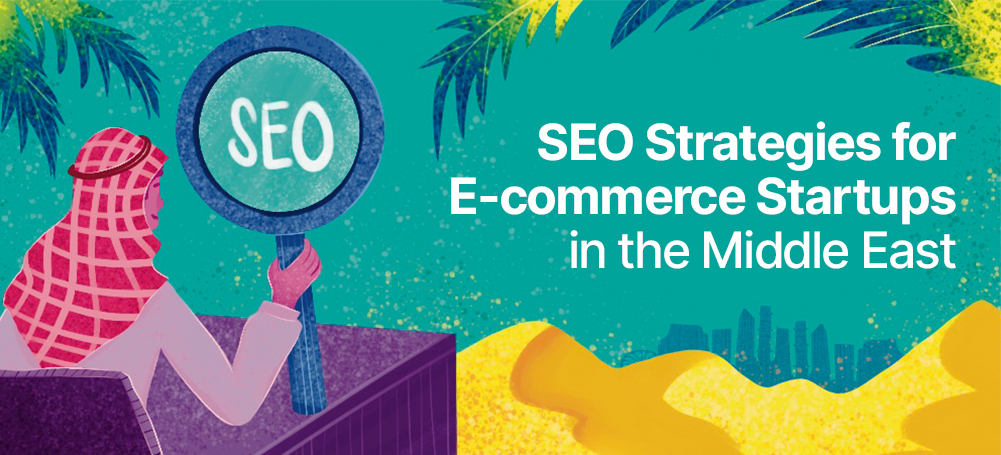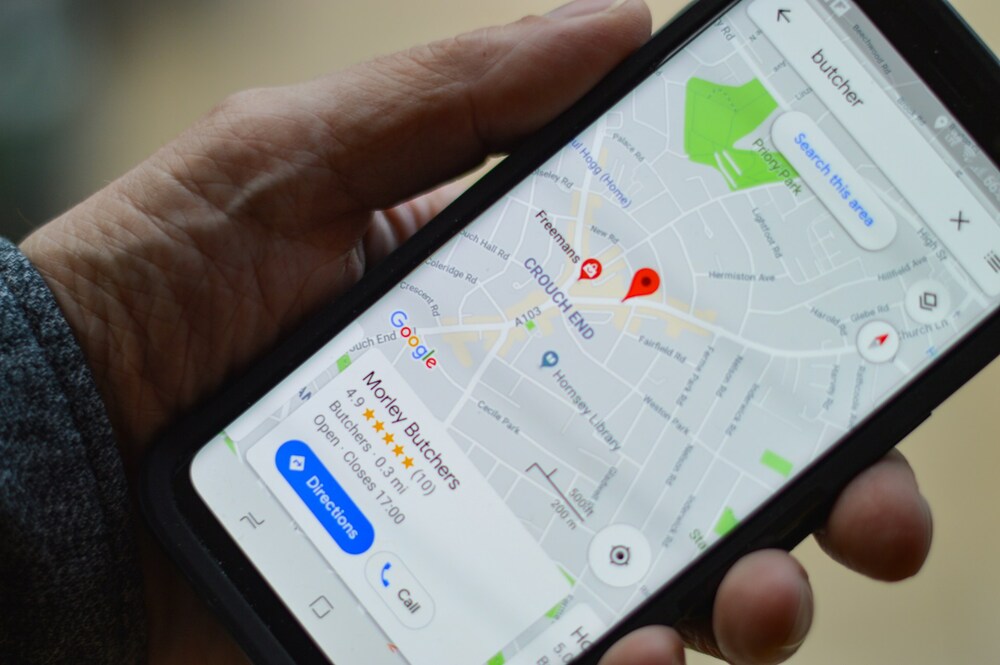
So, you’ve launched your online store in the Middle East – maybe in the UAE, maybe in Saudi Arabia, or maybe you’re bootstrapping from Cairo with dreams of regional reach. Your platform is slick, your products are solid, and your logistics are getting there. Now comes the part no one wants to talk about but everyone needs to face: Search Engine Optimization (SEO).
Why? Because without visibility, your store might as well be a well-decorated ghost town.
This article is for startup founders and marketers navigating the unique digital terrain of the MENA region. We’ll break down what makes e-commerce SEO in the Middle East different, what strategies actually work here, and how to build an organic presence that converts.
Why SEO matters for MENA e-commerce startups
Paid ads can spike your traffic fast, but for sustainable, compounding growth, search engine optimization is where the real leverage lies. This is especially true in markets like the UAE and Saudi Arabia, where digital penetration is high but organic trust is still growing.
In 2024, the UAE’s Internet penetration rate reached nearly 100%. That’s massive. Yet, despite this, most online stores in the region still underinvest in SEO.
This gap is your opportunity!
Effective e-commerce SEO in the Middle East isn’t just about keywords – it’s about localization, trust-building, Arabic content, and mobile optimization.
Let’s dig in.
- Get real about your audience’s search habits
MENA users search differently. North Africa has a mix of languages – English, Arabic, and even French – which means keyword research isn’t one-dimensional.
Start with local keyword tools:
- Google Keyword Planner (with geo targeting set to UAE, Saudi Arabia, Egypt, etc.)
- Ahrefs or SEMrush with regional filters
- Ubersuggest, which now includes localized data for Arabic
You want to find out what your customers are actually searching for. For example, someone in Dubai looking for sneakers may search for a “Nike UAE online store” or even “where to buy sneakers in Dubai.” In Riyadh, it might be “أحذية نايك أونلاين السعودية.”
Also, don’t ignore long-tail keywords. “Affordable kids clothing Dubai” might have fewer searches than “kids clothing,” but it brings in people ready to buy.
- Optimize for both English and Arabic
Here’s where things get nuanced. Google supports Arabic SEO, but the competition and complexity are different. Many UAE online store SEO efforts fail simply because brands treat Arabic like an afterthought.
If you can afford it, build a bilingual site. If not, prioritize the following:
- Creating high-quality Arabic landing pages for your top products or categories
- Translating meta titles and descriptions with nuance, not word-for-word
- Using proper hreflang tags so search engines know which language to serve
Furthermore, don’t just run your content through Google Translate. Invest in human translation or if your budget does not allow it, use a tool like DeepL, then localize.
Take Namshi, the UAE-based fashion e-commerce brand. They nailed bilingual SEO early, maintaining every product page’s dedicated Arabic and English versions. Their URLs are clean and don’t just translate – they localize. You’ll notice product descriptions in Arabic often include size guides tailored to Gulf body types and even style preferences relevant to the region. This level of cultural fluency helped them scale across the GCC before their acquisition by Noon.

- Focus on technical SEO from day one
This is where many MENA startup SEOs fall apart – the site looks nice but loads slowly, breaks on mobile, or lacks structure. You can’t skip the basics.
Key things to check:
- Page Speed: Use Google PageSpeed Insights – aim for 90+ scores on mobile and desktop
- Mobile Responsiveness: Over 80% of MENA e-commerce traffic comes from mobile sources
- Clean URL structure: Avoid /product123456. Use /men-shoes-nike-airmax instead
- Schema markup: Help search engines understand your product pages better with structured data
If you’re on Shopify, Magento, or WooCommerce, use SEO plugins/extensions early. Technical debt gets expensive.
Let’s look at Max Fashion, which has physical stores across the region and runs a robust online platform. Their site loads fast, even with a massive catalog, and their category URLs are keyword-rich and consistent across languages. They also use schema markup for product ratings and availability, which helps their listings stand out in search results.
- Create content that answers real questions
This isn’t just about blogging. It’s about being genuinely helpful.
If you’re selling skincare products, don’t just post “Top 5 Moisturizers in UAE.” Go deeper: “How to Choose a Moisturizer in Dubai’s Dry Climate.” Think local, think personal.
Some content ideas that work:
- Buying guides: Tailored to climate, culture, and price expectations in MENA
- FAQs: On shipping, customs, sizing, and delivery timelines – optimize these for featured snippets
- Product comparisons: With local pricing, delivery estimates, etc
Additionally, use Arabic content creators, reviewers, or influencers to build trust. Authenticity wins here.
A standout here is Sukar.com, an early flash-sale site in the region (later acquired by Souq and then absorbed by Amazon). While it no longer operates independently, its original success was partly driven by content marketing tailored to regional needs – think shopping guides for Ramadan, Eid-specific collections, and “how-to” gift guides that resonated culturally.
So then, what about a current player doing it well? The Giving Movement. They sell sustainable fashion, and their blog (plus social content) frequently ties environmental issues with product stories, educating their mostly young, cause-driven audience – a strategy supporting long-tail keyword coverage.
- Don’t underestimate local backlinks
Building authority in search isn’t just about content. It’s also about who links to you.
MENA startup SEO efforts often fail to build quality backlinks. However, local links matter a lot.
Here’s how to get started:
- Get listed on MENA-specific directories (like Connect.ae, UAE Results)
- Pitch local news sites or startup blogs about your launch or funding
- Partner with regional influencers and ask them to link to your store, not just tag you on Instagram
Bonus points if you can get backlinks in Arabic content. That adds extra SEO juice.
Case in point – Cairokee Store (launched by the Egyptian band Cairokee). While niche, their fanbase and collaborations with Egyptian influencers created organic backlinks from Arabic-language lifestyle blogs, local news outlets, and university pages. That kind of grassroots SEO power is what larger startups should be building systematically.
Similarly, Zid – a Saudi-based platform that helps businesses build e-commerce stores – grew partly by building strong regional partnerships and getting featured in startup media like Wamda, Startup Scene ME, and MAGNiTT, which boosted its authority and inbound links.

- Leverage local search and Google Business Profiles
Even if you’re fully e-commerce, you can still benefit from local listings, especially if you offer cash on delivery, same-day delivery, or showroom pickups.
Set up a Google Business Profile – yes, even if you don’t have a physical storefront, and then:
- Add your delivery zones as service areas
- Encourage reviews in both English and Arabic
- Post regular updates, promotions, and photos
Local SEO helps your brand show up for location-based searches like “online store Dubai fast delivery.”
Cartlow, a re-commerce platform based in the UAE, does this well. Even as an online-first business, they’ve listed service areas and pickup locations through Google My Business, showing up in local search for things like “refurbished phones Dubai” or “electronics outlet UAE.”
- Track, test, and tweak relentlessly
SEO in the Middle East isn’t a one-time setup. Algorithms shift, consumer behavior evolves, and new players pop up every week.
Keep a close eye on the following:
- Search Console: For indexing issues and keyword performance
- Google Analytics 4: To track bounce rates, conversions, and user flow
- Hotjar or Clarity: For real human behavior on-site
Don’t be afraid to A/B test meta titles, try Arabic vs. English content formats, or restructure a category page based on bounce rate.
Nana, a Saudi grocery delivery startup, is obsessive about user behavior and seamlessness. While its focus is app-based, its web presence is still SEO-optimized and heavily tested. It frequently experiments with UI changes, pushes localized content offers (e.g., Ramadan bundles), and adapts quickly based on seasonal traffic patterns – a crucial move in a region where consumer behavior changes rapidly between months like Ramadan, summer, and back-to-school seasons.
Final thoughts: build Trust before Traffic
Here’s the uncomfortable truth: You can rank #1 for all your target keywords, but if your store looks shady, loads slowly, or has confusing pricing, users won’t convert.
Look at Tamara (a regional “buy now, pay later” provider). Although it doesn’t sell physical products, its trust-building game is elite – transparent fees, Arabic-first UX, and local testimonials contribute to high organic search visibility and conversion. E-commerce startups can learn from this: building trust is as important as ranking high.
So yes, focus on e-commerce SEO in the Middle East but focus equally on trust signals:
- Fast and transparent checkout
- Clear return policies
- Local payment options (COD, Tabby, Tamara, etc.)
- Reviews and testimonials (mainly in Arabic)
TL;DR – Your MENA SEO Checklist
- Keyword research in English and Arabic
- Fast, mobile-first site with clean technical SEO
- Locally relevant content, not generic blog spam
- Backlinks from local sites, blogs, and influencers
- Google Business Profile and review strategy
- Continuous testing and performance monitoring
Useful Resources
Let’s make SEO less of a buzzword and more of a business edge – because in the Middle East, where competition is growing fast and trust is everything, good SEO is not optional.

